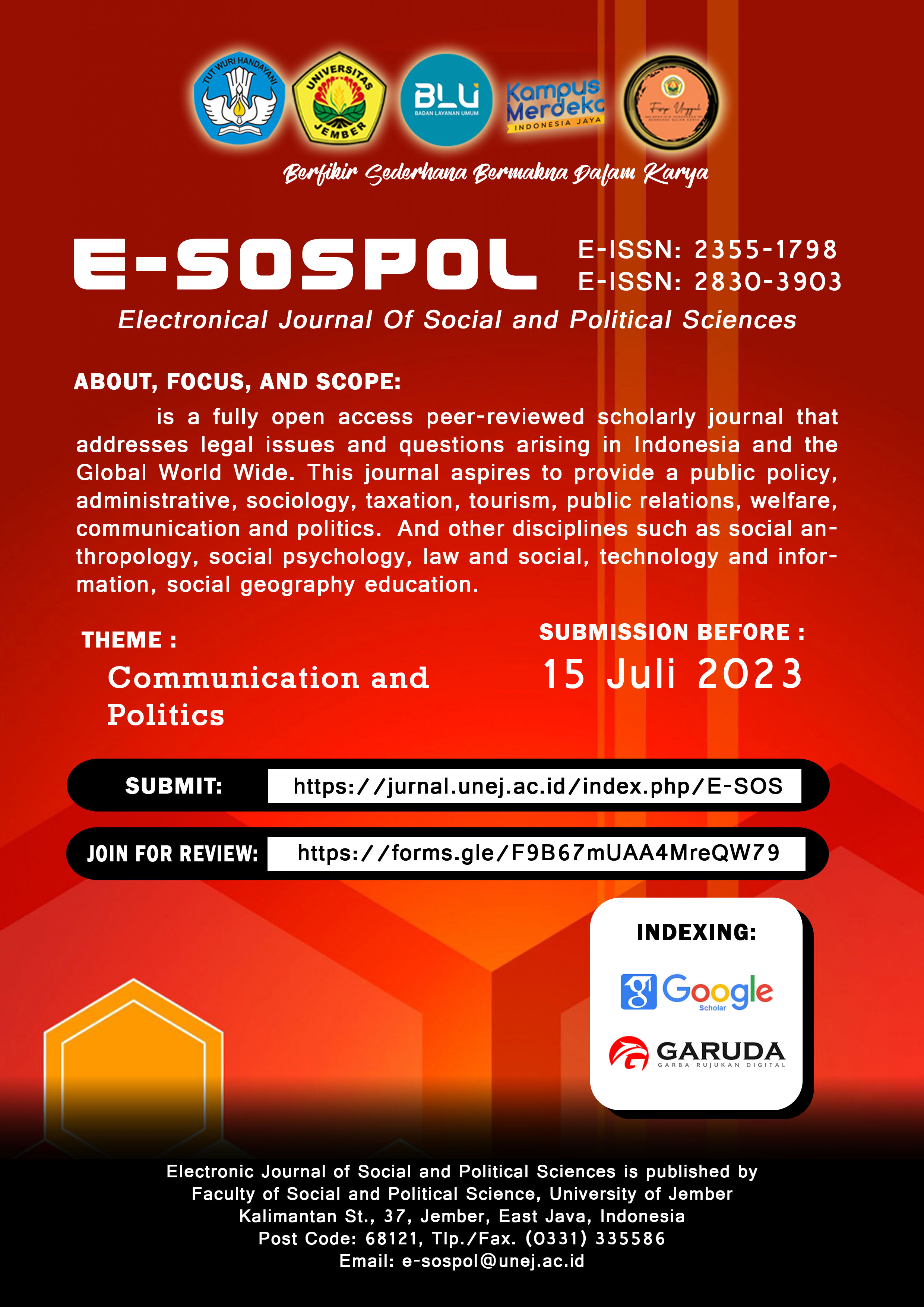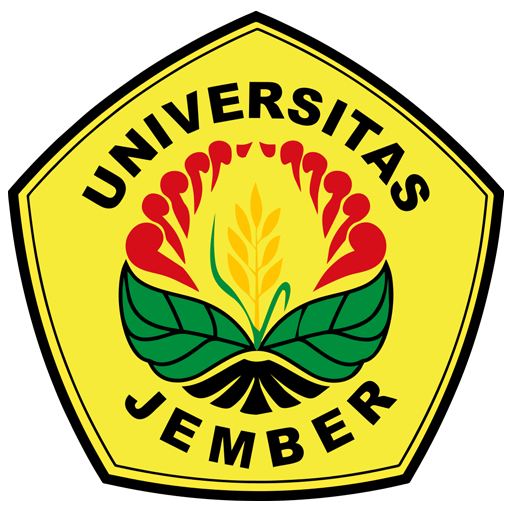Upaya PerMaTa (Perhimpunan Mandiri Kusta) Dalam Membangun Kapital Sosial pada Komunitas Orang Kusta di Kecamatan Jenggawah Kabupaten Jember
Abstract
Jember is an area in East Java province with dense population and diverse cultures and has characteristics in its communities. In addition, Jember has a variety of social problems including unemployment, crime, poor education, as well as cases of infectious diseases that cause sufferers to experience social dysfunctions such as leprosy. Leprosy leads to social problem such as stigma and discrimination in the community. The stigma of disease which is identical with the poor is a big social problem, from exclusion to getting no job. The research was conducted in the Jenggawah village, Jember Regency. The researchers’ reason to choose the village was because it was the leprosy endemic area. The research was designed as a qualitative research. The research results described that PerMaTa organization built trust by improving trust between members, members and board, as well as their partners. PerMaTa built a social network by establishing trust with the public through information media, as well as creating a norm by balancing the rights and obligations of all members. Meanwhile, the obstacles faced were lack of human resources support due to low education, lack of openness among its members, as well as lack of members’ awareness of the association. The conclusion of this research is that PerMaTa as the process of empowerment of people who ever experienced and are suffering leprosy is conducted and organized by a social organization in order to gain a proper living for themselves or others.
Keywords: efforts, PerMaTa Organization, social capital
Penulis yang mengusulkan naskahnya untuk dapat diproses penerbitannya pada e-SOSPOL dianggap telah menyetujui beberapa hal sebagai berikut:
1. Penulis tidak dapat menarik naskah yang telah usulkan untuk diproses hingga mendapat jawaban dari Ketua Dewan Penyunting atas status naskah artikel ilmiahnya (diterima atau ditolak untuk diterbitkan).
2. Penerbit tidak bertanggung jawab terhadap kasus plagiasi atas artikel yang terbit pada e-SOSPOL
3. Penerbit tidak bertanggung jawab atas data dan isi dari artikel yang diterbitkan pada e-SOSPOL, dan sepenuhnya merupakan tanggung jawab penulis.






.png)

